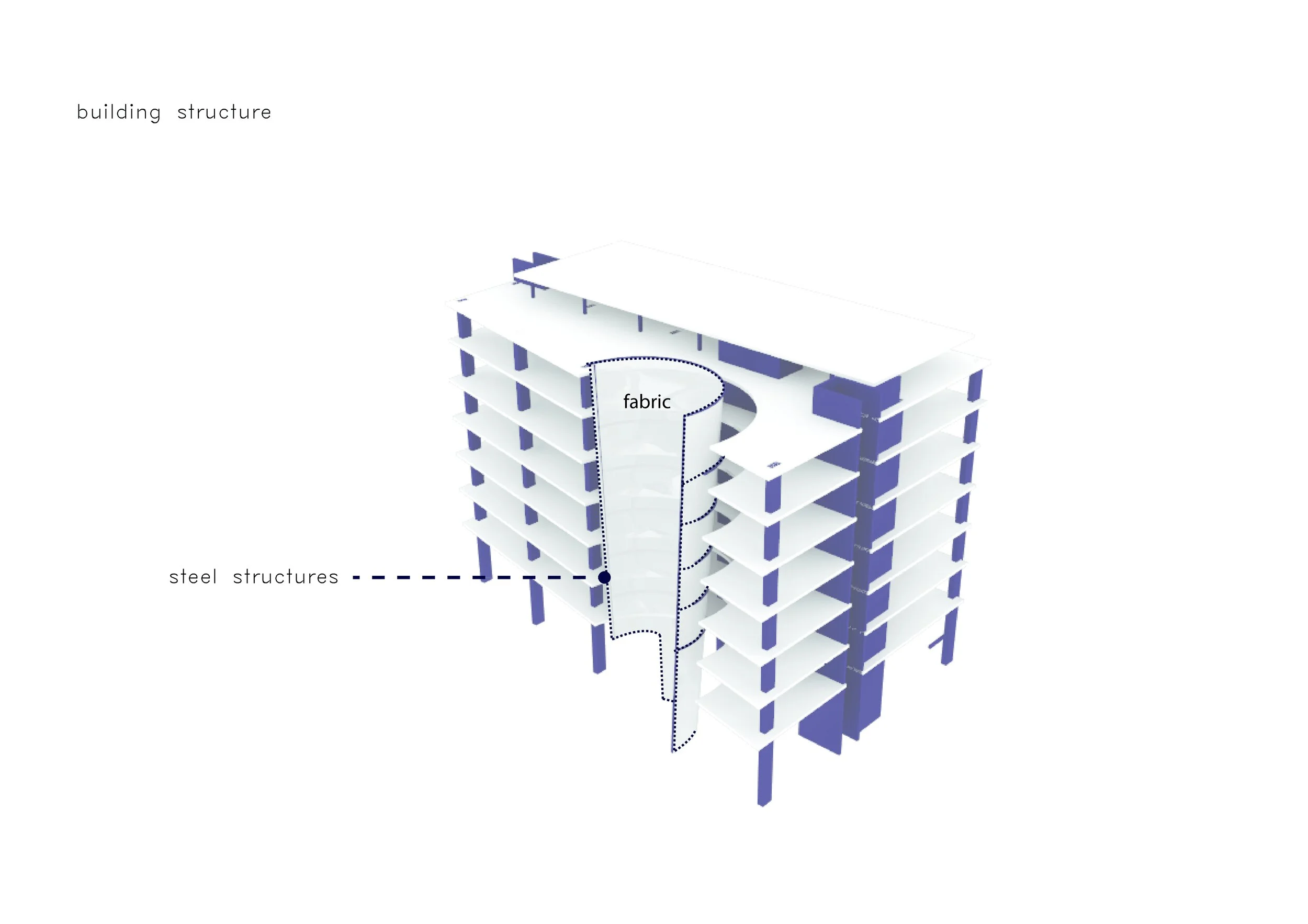













Architect and Interior designer : PHTAA living design
Engineer : collage engineering
project owner : LKN group
Lighting designer : Jitlekha Rampongsa
Landscape designer : Su Landscape Architecture Co.,Ltd.
Graphic designer : Studio Marketing Materials
Artist : COLLAB
Story : Mark bradbury
special thanks : vivi decorative / kernel design / green volunteer
contractor : บริษัท วิศวปัญญา ก่อสร้าง จำกัด , together interior and construction
photographer : Beer Singnoi

Beyond the symbol
Blu395 is a low-rise mixed use building with 84 guestrooms and 3 units of retail space, located in Saphan Kwai on Pahon Yothin Road, one of the main arterial roads from the city center heading due north to Ayuthaya. Saphan Kwai is not so much a destination as a transit zone for both commuters using Pahon Yothin and the Bangkok skytrain which runs parallel to and above it. As such, there seemed an opportunity to create a memorable experience that could punctuate an otherwise boring commute in Bangkok traffic.
Re-appropriation of mundane materials in a creative and surprising way is a key tenet of architectural firm, PHTAA. The facade of the Blu395 Residence uses the kind of steel grating usually reserved for drainage covers or industrial flooring as its defining feature. Its primary function is to provide privacy for the hotel guests on their balconies and to create a uniform face to the building: a practical approach to screening anything the guests should have on the balconies, such as drying washing. The facade grating is painted on both sides with “two perceptions of the city” in a style reminiscent of a lenticular postcard. Outbound commuters are given a view of the city with traditional Thai houses, and for the inbound journey, the depiction is of the more modern city with shophouses. Both these elements of the city, however, are now vanishing with the construction of malls and condos. The pace at which you pass by adds another element to perception of the facade: the skytrain speeds past, while pedestrians and traffic stuck at the lights pass slowly so that they can experience the “vanishing point” when the viewers can see through the screen to the hotel.
To generate a gradation of shading and allow natural light into the corridor space, another layer of screening, using translucent canvas, envelopes an atrium space carved into the edge of the building behind the steel grating facade. This screen allows more privacy for the hotel lobby, which is further separated from the street by a clear polycarbonate wall. The atrium space is shaped as a truncated cone with a 10 degree angle to maximize natural light and is open on the street side to allow air to flow through the grating and up to the sky. Being next to the street, this was an opportunity to give back something to pedestrians in terms of a small, semi-circular green space.
The overall functionality of the building with commercial spaces below and living above is reminiscent of a traditional Thai shophouse. This reference is further reinforced in the prominent positioning of the internal stairs in the retail spaces and the fire escape stairs linking all floors around the edge of the atrium.
Blu395 reminds commuters of the mixture of Bangkok architecture, both shophouse and traditional house by its use of screens in an area once famous for standalone cinemas.
